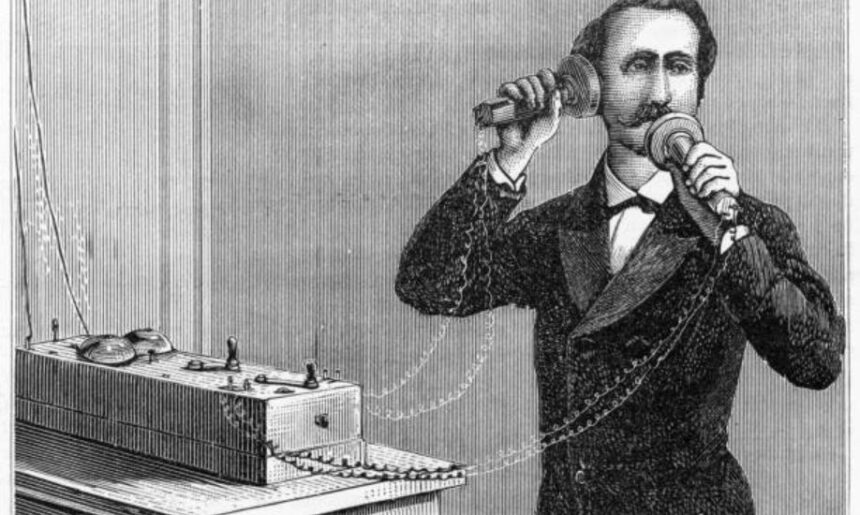The invention of the telephone in 1876 by Alexander Graham Bell revolutionized not only personal communication but also the world of business. This groundbreaking innovation fundamentally altered how companies operated, expanded, and connected with customers and partners. In this article, we will explore the multifaceted ways the invention of the telephone most impacted businesses, analyzing its profound effects on communication, productivity, customer service, and market expansion.
The Birth of Instant Communication in Business
Before the telephone, businesses relied heavily on letters, messengers, and the telegraph for communication. These methods were slow, limited in reach, and often unreliable. The invention of the telephone introduced instantaneous communication, allowing companies to exchange information in real time.
With the ability to speak directly to colleagues, partners, and clients, businesses experienced a dramatic reduction in decision-making time. This immediacy not only improved efficiency but also fostered stronger professional relationships. Companies could now respond to market changes swiftly, giving them a competitive edge in their respective industries.
Enhanced Customer Service and Engagement
One of the most notable impacts of the telephone was its transformation of customer service. Businesses could now engage directly with their customers, addressing queries and concerns promptly. This direct line of communication built trust and enhanced customer satisfaction.
Retailers and service providers leveraged this technology to establish helplines, enabling customers to place orders, seek assistance, or provide feedback without needing to visit a physical location. The telephone bridged the gap between businesses and their clientele, paving the way for modern customer service practices.
Boosting Productivity and Internal Communication
The telephone significantly improved internal communication within organizations. Departments could coordinate tasks and share updates without the need for time-consuming meetings or written correspondence. This improvement streamlined workflows and reduced operational inefficiencies.
For example, sales teams could instantly check inventory levels or shipment statuses with warehouse staff, ensuring a seamless customer experience. Additionally, managers could provide instructions and receive updates in real time, fostering a more dynamic and responsive workplace environment.
Expanding Market Reach and Global Connections
The telephone enabled businesses to transcend geographical barriers, opening doors to regional, national, and even global markets. Companies could communicate with suppliers, partners, and clients across different locations, facilitating trade and partnerships on an unprecedented scale.
This capability was especially beneficial for industries like manufacturing, logistics, and retail. Businesses could source materials from distant suppliers or market their products to customers in far-off regions, accelerating economic growth and fostering globalization.
Facilitating Remote Work and Telecommuting
While remote work is often associated with modern technology, the telephone laid the foundation for this practice. Employees could stay connected to their offices while working from different locations, offering flexibility that was previously unimaginable.
This newfound mobility allowed companies to tap into a broader talent pool and accommodate employees’ personal circumstances. It also set the stage for the development of telecommuting and remote work arrangements that have become increasingly common in today’s digital age.
The Economic Ripple Effect of the Telephone
Beyond individual businesses, the telephone’s invention had a broader economic impact. It spurred the growth of industries like telecommunications, manufacturing, and customer service. The demand for telephone equipment and infrastructure created numerous job opportunities and contributed to technological advancements.
Moreover, the telephone became a catalyst for innovation, inspiring the creation of complementary technologies and services. From telephone exchanges to automated systems, the ripple effects of this invention continue to shape the business landscape.
The Telephone as a Catalyst for Modern Business Practices
Discovering that How did the Invention of the Telephone most impact Businesses? The invention of the telephone also influenced the development of modern business practices. It encouraged companies to adopt more organized and efficient methods of communication and record-keeping. Businesses began to prioritize accessibility and responsiveness, laying the groundwork for contemporary standards in customer relations and corporate operations.
Conclusion: A Revolutionary Business Tool
The telephone’s invention marked a turning point in business history. By introducing real-time communication, it transformed how companies operated, served customers, and expanded their reach. Its impact is evident in every aspect of modern commerce, from internal collaboration to global trade.
Even in today’s digital era, where emails and video conferencing dominate, the foundational principles introduced by the telephone remain relevant. The legacy of this remarkable invention underscores the profound influence technology can have on the way we work and connect.






